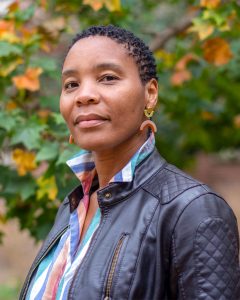
LaVoya Woods-Dionne is in her second year of the MSW program at the University of North Carolina at Chapel Hill School of Social Work. She has worked as an intern with refugees, adults and children who’ve experienced the trauma of war. In her military life she served four years in the U.S. Air Force as a Data Analyst, traveling both stateside and overseas, assessing and reporting the health of the fleet.
1. What is the biggest difference you’ve noticed in transitioning from military life to civilian life?
The biggest shift for me was adjusting to the differences in accountability and structure. Military life depends on a robust and consistent system of accountability both professionally and personally. Our lives are incredibly structured to support us in remaining focused on the importance of the mission. It was an adjustment when I realized that professional ethics, training, and accountability were widely varied among civilian organizations. When I was serving, it was comforting knowing that there was always an airman or community member close by should I need support. It took a while for me to rebuild those support structures in civilian life.
2. What is something you wish you had known before moving here?
Before moving here I wish I’d known that there was a military student community I could tap into. It may have eased some of my anxiety about being an adult learner in a more traditional education setting.
3. What is an important lesson that you learned in the military that has helped you in grad school?
Integrity First. This is one of the three grounding principles of Air Force life. I’ve realized that a central core of integrity makes my interactions in the classroom and on campus more authentic. Combined with empathy and compassion, the integrity enhanced by my military experience integrates easily into the developing professional identity necessary for grad school and social work. Additionally, the pace and intensity of military work overseas equipped me to handle the simultaneous demands of coursework, research assistantships, and internships.
4. What made you choose UNC/NC when deciding on a program/place to study?
I am originally from New York and was stationed in major cities for the bulk of my time in the Air Force. Thus, I was looking for a change of pace that wouldn’t leave me entirely isolated among the trees. Additionally, I wanted to ensure that I would be at a highly respected program that would prepare me for the next phase of my career. UNC School of Social Work is ranked fourth in the country and is moving forward the kind of scholarship and interactions with marginalized populations that I am interested in. Chapel Hill and its proximity to Raleigh and Durham give me the slower life of southern porches and sweet tea while also feeding the academic in me that thrives in rigorous study.
